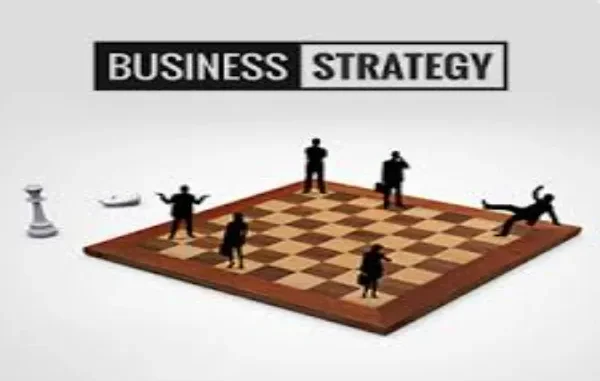
In today’s fast-paced business world, decision-making, strategic planning, and competitive analysis are more important than ever. One of the most effective ways to sharpen these skills is by participating in a business strategy game. Whether you’re a budding entrepreneur, a student in business school, or a corporate executive looking to enhance your strategic thinking, business strategy games offer a unique, hands-on learning experience that can help you develop key competencies.
In this article, we’ll explore what business strategy games are, how they work, and why they’re a powerful tool for enhancing business acumen. We’ll also provide an overview of some of the most popular strategy games available and tips on how to maximize your learning from them.
What is a Business Strategy Game?
A business strategy game is a simulation or interactive game designed to teach players about strategic management, business operations, and market competition. These games typically involve decision-making exercises that simulate real-world business scenarios, where players must manage various aspects of a company, such as marketing, finance, operations, and human resources.
In a business strategy game, players are often tasked with leading a company or organization, facing challenges that require critical thinking, problem-solving, and teamwork. The goal is to make decisions that will drive the success and growth of the business while competing against other virtual companies or teams.
Business strategy games are often used in business schools, corporate training programs, and by aspiring entrepreneurs to simulate business challenges and develop skills in areas such as:
- Strategic planning
- Market analysis
- Financial management
- Leadership and teamwork
- Risk management
How Does a Business Strategy Game Work?
Business strategy games vary in complexity and scope, but most follow a similar structure. Players typically operate within a simulated environment where they can make decisions regarding key business functions, track performance, and adjust their strategies over time.
Here’s a basic breakdown of how a typical business strategy game works:
- Team or Individual Setup: Players usually compete as individuals or in teams, each representing a virtual company. Each team starts with a set of initial resources, such as capital, products, and employees.
- Decision-Making: Players must make decisions in key areas of business management, including:
- Marketing and advertising: Deciding on marketing campaigns, brand positioning, and pricing strategies.
- Finance and budgeting: Managing company finances, securing funding, and allocating budgets to different departments.
- Operations: Overseeing production, supply chain management, and inventory control.
- Human resources: Hiring, training, and managing employees to ensure optimal performance.
- Research and development: Investing in innovation, developing new products, and improving existing ones.
- Competition: Many business strategy games feature a competitive element, where players compete against other teams or companies within the game. Each decision made impacts the company’s performance, and players must constantly adapt to changing market conditions and competitor actions.
- Evaluation and Feedback: At regular intervals, players receive feedback on their performance in the form of reports or scores, often comparing their company’s performance to that of others. These reports typically cover key performance indicators (KPIs), such as profitability, market share, customer satisfaction, and growth metrics.
- Adjustment and Strategy Refinement: Based on feedback, players refine their strategies, make new decisions, and adapt to the ever-changing business environment within the game.
Why Play a Business Strategy Game?

Playing a business strategy game offers a variety of benefits, including developing both hard and soft skills that are essential for success in the business world. Here are some of the key advantages of engaging in business strategy games:
1. Improves Strategic Thinking
One of the primary benefits of playing a business strategy game is that it helps players develop critical thinking and strategic decision-making skills. Players must evaluate various scenarios, forecast potential outcomes, and determine the best course of action to achieve success. This process mimics real-world business challenges, where leaders must anticipate market changes and make decisions that impact their company’s future.
2. Simulates Real-World Business Environments
Business strategy games create a safe environment to simulate real-world business environments and scenarios. Players can experiment with different business strategies, learn from their mistakes, and refine their decision-making without facing the financial and legal risks associated with running an actual company. This makes the game an excellent training tool for aspiring entrepreneurs and business professionals.
3. Enhances Financial Acumen
Running a business involves managing budgets, assessing financial risks, and optimizing investments. In many strategy games, players are responsible for managing their company’s finances, making financial decisions, and tracking the company’s performance against key financial metrics. This helps develop financial literacy, including understanding profit and loss, ROI (return on investment), and cash flow.
4. Fosters Teamwork and Leadership Skills
Many business strategy games are team-based, requiring players to work together to make decisions and implement strategies. This fosters collaboration, effective communication, and leadership skills. Players must often take on specific roles within the team, allowing them to develop leadership qualities and learn how to manage team dynamics effectively.
5. Teaches Risk Management and Adaptability
In a dynamic business world, change is inevitable. Business strategy games often throw players curveballs in the form of economic shifts, new competitors, or unforeseen market conditions. Players must manage risks, adapt to changes, and pivot their strategies as necessary. This teaches resilience and adaptability, qualities that are essential for long-term success in any business.
6. Builds Marketing and Operational Expertise
Running a virtual company in a strategy game means managing various business functions, including marketing and operations. Players make decisions about product development, pricing, distribution, and promotional strategies. This provides hands-on experience in the practical aspects of business, allowing players to learn by doing, without the pressure of real-world consequences.
Popular Business Strategy Games
There are several business strategy games that have been used by business schools, corporate teams, and entrepreneurs to develop skills. Here are a few notable games that are widely recognized for their effectiveness in business education:
1. The Business Strategy Game (BSG)
One of the most popular business strategy games, The Business Strategy Game (BSG) is an online simulation where players manage a global company in the athletic footwear industry. Players make decisions related to production, marketing, finance, and R&D, while competing with other teams. BSG is widely used in business schools to teach strategic management and decision-making.
2. SimCity
While not specifically a business game, SimCity is a city-building simulation that requires players to manage resources, set budgets, and make long-term plans to ensure the success of their virtual city. SimCity helps players learn about resource management, budgeting, and strategic planning in a dynamic environment.
3. Capitalism II
In Capitalism II, players take on the role of a business tycoon, managing a company and building a business empire. This game simulates real-world business scenarios, including manufacturing, marketing, and retail, and offers players a chance to control every aspect of their business empire. It is particularly valuable for those interested in understanding business operations at a granular level.
4. RollerCoaster Tycoon
For entrepreneurs who enjoy a more creative challenge, RollerCoaster Tycoon offers a fun take on business strategy. In the game, players manage a theme park, handling everything from designing roller coasters to managing finances, marketing, and customer satisfaction. It’s a great way to learn about customer service and balancing creativity with profitability.
5. Virtonomics
Virtonomics is an online business simulation game that offers players the chance to manage a company in a competitive global market. It covers multiple industries, including retail, manufacturing, and technology. Players must develop business strategies, manage finances, and outwit their competitors.
Tips for Excelling in Business Strategy Games
To get the most out of your business strategy game experience, consider these tips:
- Understand the Rules and Objectives: Each game has its own set of rules, objectives, and scoring systems. Make sure you fully understand the mechanics and the end goal of the game.
- Analyze Market Trends: Pay attention to the market conditions and adjust your strategies accordingly. Business strategy games often reflect real-world economic factors that impact decision-making.
- Collaborate and Communicate: If you’re playing in a team, clear communication and collaboration are essential. Make sure everyone understands the plan and their role in executing it.
- Experiment and Learn from Mistakes: Don’t be afraid to experiment with different strategies. Mistakes are part of the learning process, so use them as opportunities to grow and refine your decision-making.
Conclusion: The Value of Business Strategy Games
Business strategy games are an engaging and practical way to develop the skills and knowledge necessary for success in the business world. They offer a hands-on approach to learning key concepts such as strategic planning, financial management, and teamwork. By participating in these games, players can build a strong foundation in business strategy, improve their decision-making abilities, and prepare for real-world challenges.
Whether you’re a business student, entrepreneur, or seasoned professional, engaging with business strategy games is an excellent way to enhance your business acumen and have fun while learning. So why not take the plunge into a business strategy game and see how you can develop the skills that will take your career or business to the next level?






Leave a Reply